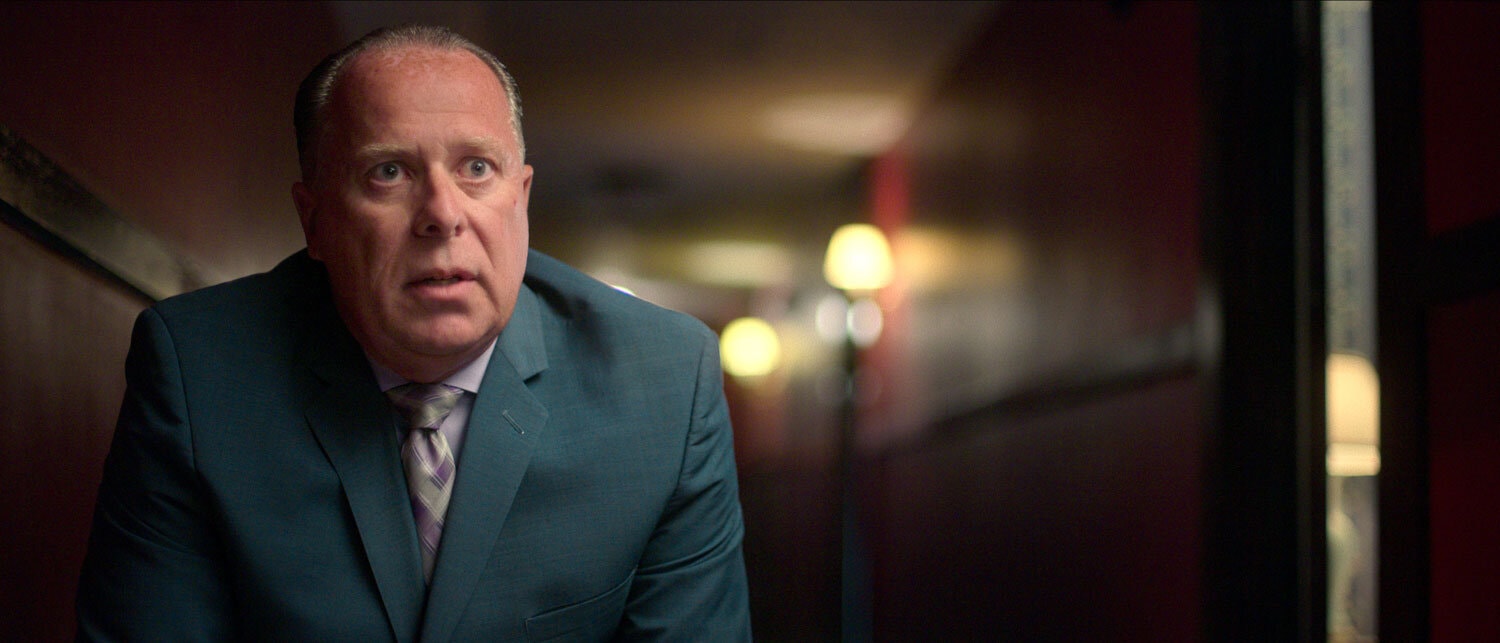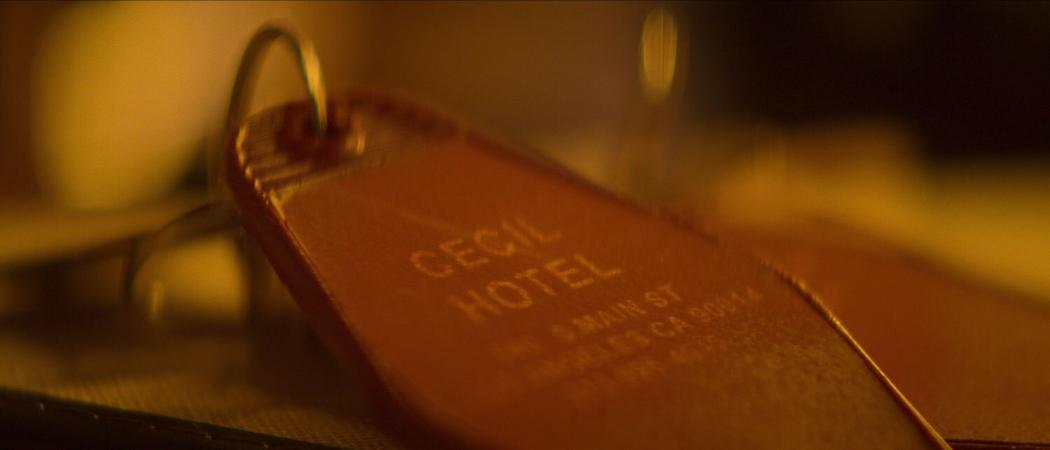Netflix has recently released a new true-crime documentary called Crime Scene: The Vanishing At The Cecil Hotel. Centering on the death of Elisa Lam – a student who died in the Cecil Hotel’s water tank in mysterious circumstances – it analyses different theories about “what really happened’, as well as interviewing people involved directly with the case. Maybe now is the time to consider boundaries when it comes to true crime? If you have not watched the programme, please note there are spoilers beyond this point.
Background and the location of the Cecil Hotel

Credit: Netflix
Read more: Why Is Thomas Jane’s Mystery Thriller The Vanished Doing So Well On Netflix
The location of the hotel in LA was always going to be ‘questionable’, as was the prior history of the hotel itself. Outside is a significant area of people who were/are homeless, for example – with several people pointing out that drugs were sometimes present at the time. The hotel had also previously been the home of at least one serial killer. A woman who worked at the hotel for several years also pointed out that there was a lot going on at the hotel – such as with overdoses, and ambulances needing to be called often. It was ‘the regular’ thing, one responder pointed out.
While it is worthwhile exploring this angle – as any good documentary maker would know – it’s all about the context, the ‘colour’. It felt a little bit superficial at times, such as not analyzing the causes as to why there was such extreme poverty.
‘The Truth Is Out There’

Credit: Netflix
Read more: John Krasinski Already Has Life Of Mars Lined Up As His Next Directing Project
A lot of screen time is spent on one video. Captured in the hotel, it shows Elisa Lam acting erratically around a lift – or an elevator. She pushes many buttons, steps in and out, her movements are somewhat jagged. The lift still stays open, in position – and she eventually steps out, leaves. It is a clip described with various semantics – that it was ‘creepy’, ‘disturbing’, ‘haunting’. It is the last known footage of Elisa Lam prior to her death.
In response to this, much of Crime Scene: The Vanishing At The Cecil Hotel and how Elisa Lam met her death, with the clip analyzed over and over again. It is perhaps one of the first clips to have gone ‘viral’, before this became a buzz word that we are all now familiar with. There are ‘internet sleuths’ who give their opinions about what happened, all ostensibly in the course of wanting justice for a woman halfway across the world, who they never met. The theories have spurious evidence at best – such as suggesting someone had control of the elevator hence why it was always open, that there was something paranormal about this. It has an element of the X Files to it – how ‘the truth is out there’ – despite these individuals having no training in policing or investigations.
Don’t get me wrong, ‘internet sleuths’ have had a huge impact – we all saw that in Don’t Fuck With Cats. But people who served on the police investigation at the time would remark how this was unhelpful, with hundreds of people phoning in theories, as well as being potentially obstructive. Most of the espoused theories had no factual basis – such as to suggest the video that was released had been slowed down, or a time stamp ostensibly indicating up to a minute of missing footage. Then it is the Hotel that is blamed for this – because they apparently ‘covered it up’.
YouTube and being a ‘YouTuber’ is something we all know – but it just feels exploitative to see those who created content off the back of a tragic event retrospectively. It feels unpalatable at best. YouTubers are not journalists; they are not professionally trained in reporting. Some of the views may very well be defamatory, too.
And what about the impact?

Credit: Netflix
Read more: How Will The Umbrella Academy Season 2 End?
A lot has been made of the water supply tank and how Elisa Lam was found in it. There were residents at the hotel who recounted on camera issues with the water quality – and how it had a black appearance. It is a detail that is quite gruesome – and it eventually leads to the discovery of Elisa Lam’s body. But let’s talk about the impact – and the impact of the documentary itself.
However, this would be an opinion piece in review of the documentary. True crime as a genre is problematic at times – but conspiracy theorists have been given so much air time to spread hurtful lies about her death. (For example, hotel water being black a year after her death; she was found in the water supply. The hotel ‘covered it up’.)
Have a look at the reviews for The Cecil in the States on Google. It is not funny at all to suggest that the water supply is still like that – or to even joke about that. No one has written about the Lam family being involved in this documentary – which is because they are not. A family lost a valuable member of their unit, their ‘tribe’ – and yet this is adding fuel to a fire that has been extinguished by age and time since. Their pain is probably still very real to them – but to hear the baseless, irresponsible theories about such an event is just a feeling no one should ever have to deal with.
Right now, Crime Scene: The Vanishing At The Cecil Hotel is one of the biggest programmes on Netflix – but we should all think very hard about its impact, and whether or not to watch. ‘True crime’ has become a genre unto itself – and we have seen that, thanks to the boom in podcasts for example. But this is pushing a boundary, into a painful event of a family, for the sake of entertainment, for views. The impact is also further reaching – and accusations of a ‘cover up’ and black water still float around the internet, making its way into reviews. That’s not funny at all. True-crime can be done ‘the right way’ – such as involving those involved ethically, start to finish. Maybe we should watch something entirely different while we are still turned into our screens, thanks to Covid 19.
What do you make of this feature? Did you enjoy Crime Scene: The Vanishing At The Cecil Hotel on Netflix? Let us know your thoughts in the comments below.
What do you make of this story? Let us know in the comments below or on our Facebook, Twitter or Instagram pages! And if you enjoy listening to film podcasts, why not check out our podcasts, Small Screen Stories and Small Screen Film Club wherever you get your podcasts!
















Elisa Lam’s blogs and social media sites are listed here –
http://elisa-lam-blogs.blogspot.com